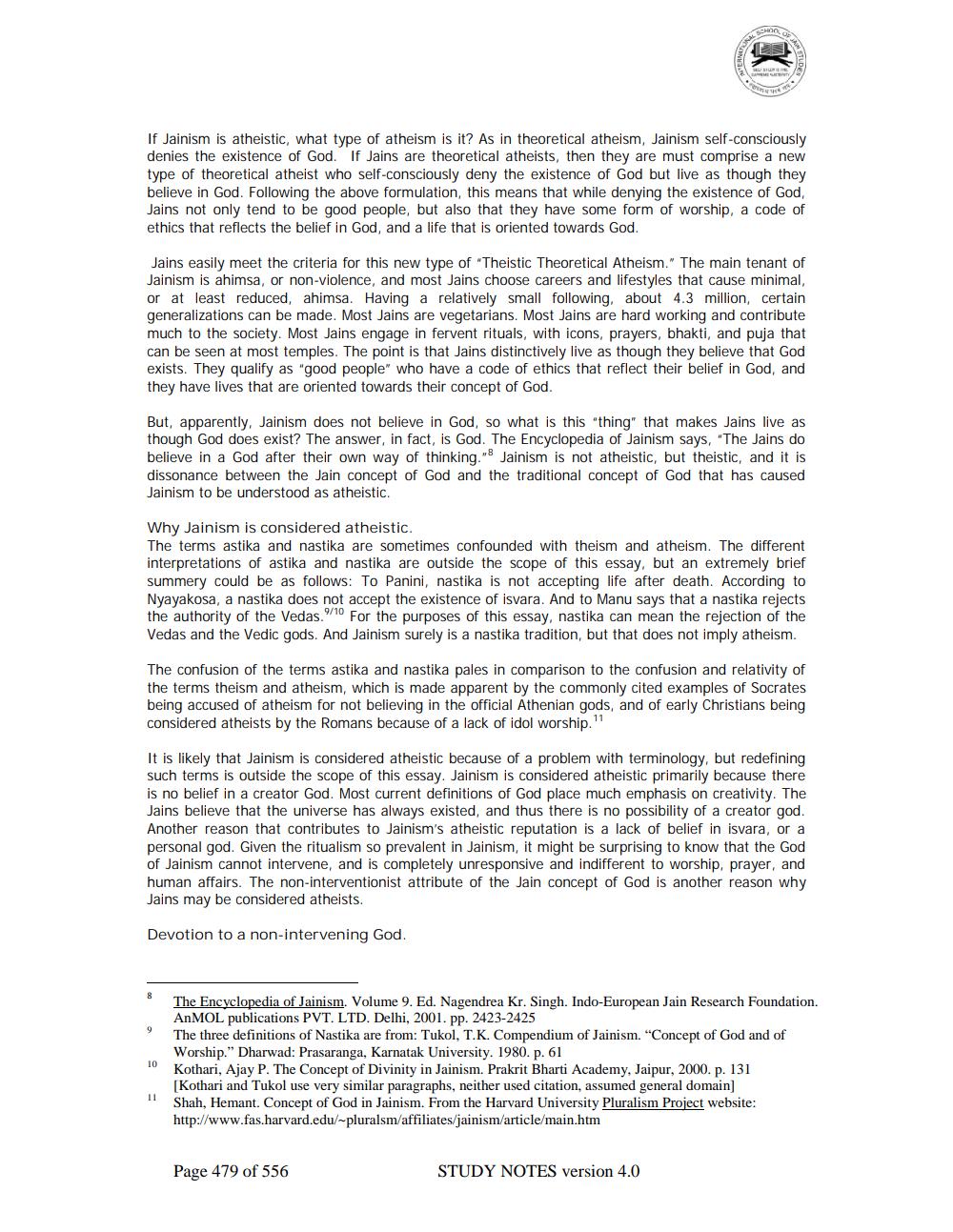________________
If Jainism is atheistic, what type of atheism is it? As in theoretical atheism, Jainism self-consciously denies the existence of God. If Jains are theoretical atheists, then they are must comprise a new type of theoretical atheist who self-consciously deny the existence of God but live as though they believe in God. Following the above formulation, this means that while denying the existence of God, Jains not only tend to be good people, but also that they have some form of worship, a code of ethics that reflects the belief in God, and a life that is oriented towards God.
Jains easily meet the criteria for this new type of "Theistic Theoretical Atheism." The main tenant of Jainism is ahimsa, or non-violence, and most Jains choose careers and lifestyles that cause minimal, or at least reduced, ahimsa. Having a relatively small following, about 4.3 million, certain generalizations can be made. Most Jains are vegetarians. Most Jains are hard working and contribute much to the society. Most Jains engage in fervent rituals, with icons, prayers, bhakti, and puja that can be seen at most temples. The point is that Jains distinctively live as though they believe that God exists. They qualify as "good people who have a code of ethics that reflect their belief in God, and they have lives that are oriented towards their concept of God.
But, apparently, Jainism does not believe in God, so what is this "thing" that makes Jains live as though God does exist? The answer, in fact, is God. The Encyclopedia of Jainism says, "The Jains do believe in a God after their own way of thinking." Jainism is not atheistic, but theistic, and it is dissonance between the Jain concept of God and the traditional concept of God that has caused Jainism to be understood as atheistic.
Why Jainism is considered atheistic. The terms astika and nastika are sometimes confounded with theism and atheism. The different interpretations of astika and nastika are outside the scope of this essay, but an extremely brief summery could be as follows: To Panini, nastika is not accepting life after death. According to Nyayakosa, a nastika does not accept the existence of isvara. And to Manu says that a nastika rejects the authority of the Vedas. For the purposes of this essay, nastika can mean the rejection of the Vedas and the Vedic gods. And Jainism surely is a nastika tradition, but that does not imply atheism.
The confusion of the terms astika and nastika pales in comparison to the confusion and relativity of the terms theism and atheism, which is made apparent by the commonly cited examples of Socrates being accused of atheism for not believing in the official Athenian gods, and of early Christians being considered atheists by the Romans because of a lack of idol worship."
It is likely that Jainism is considered atheistic because of a problem with terminology, but redefining such terms is outside the scope of this essay. Jainism is considered atheistic primarily because there is no belief in a creator God. Most current definitions of God place much emphasis on creativity. The Jains believe that the universe has always existed, and thus there is no possibility of a creator god. Another reason that contributes to Jainism's atheistic reputation is a lack of belief in isvara, or a personal god. Given the ritualism so prevalent in Jainism, it might be surprising to know that the God of Jainism cannot intervene, and is completely unresponsive and indifferent to worship, prayer, and human affairs. The non-interventionist attribute of the Jain concept of God is another reason why Jains may be considered atheists.
Devotion to a non-intervening God.
&
The Encyclopedia of Jainism. Volume 9. Ed. Nagendrea Kr. Singh. Indo-European Jain Research Foundation. AnMOL publications PVT. LTD. Delhi, 2001. pp. 2423-2425 The three definitions of Nastika are from: Tukol, T.K. Compendium of Jainism. "Concept of God and of Worship." Dharwad: Prasaranga, Karnatak University. 1980. p. 61 Kothari, Ajay P. The Concept of Divinity in Jainism. Prakrit Bharti Academy, Jaipur, 2000. p. 131 [Kothari and Tukol use very similar paragraphs, neither used citation, assumed general domain] Shah, Hemant. Concept of God in Jainism. From the Harvard University Pluralism Project website: http://www.fas.harvard.edu/-pluralsm/affiliates/jainism/article/main.htm
Page 479 of 556
STUDY NOTES version 4.0




